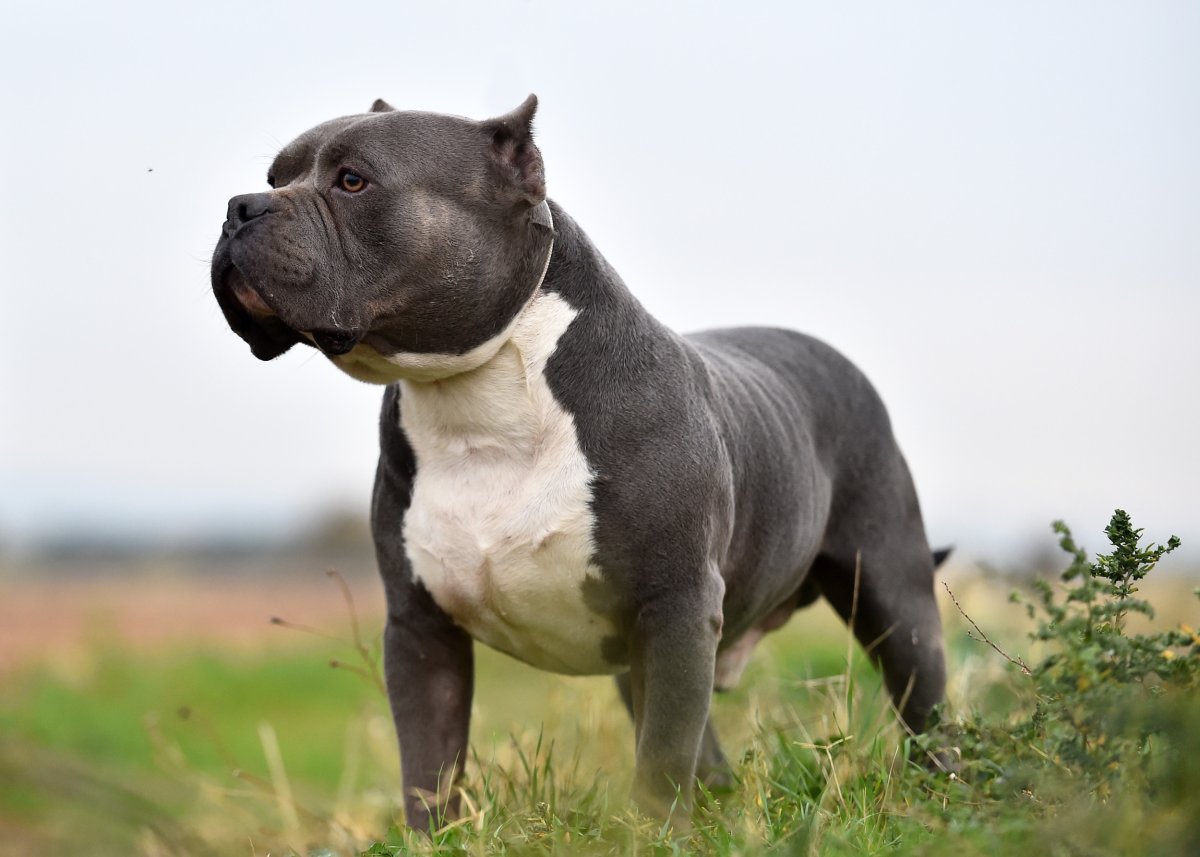A toddler in the U.K. required urgent medical attention after being an attack by an American XL bulldog.
The 20-month-old boy was attacked outside a hotel in Greenwich, London, at 10 a.m. local time on Monday, and was rushed to hospital.
The dog's owner, a 30-year-old man, has been charged with allowing a dog to be dangerously out of control.
"On 02/10/23 a 20 month old boy was attacked by an XL Bully dog in the street in [Greenwich]. The dog was seized & has been put to sleep," the Metropolitan Police Taskforce posted on X, formerly known as Twitter.

"The boys injuries have been treated at hospital. They are not life changing or threatening fortunately. We wish the victim all the best with his recovery and thoughts with his family," the Met Taskforce post said.
American XL bulldogs, or "bullies," are defined as the largest kind of American bulldog, with XL males measuring between 21 and 23 inches tall at the shoulder.
The U.K. government recently announced that they intend to ban XL bullies by the end of the year under the provisions of the 1991 Dangerous Dogs Act. Pit bull terriers, Japanese tosas, gogo Argentinos and fila Brasileiros are all banned in the U.K.
XL bullies were responsible for two of the four fatal dog attacks in the U.K. 2021 and six of the 10 in 2022.
However, some dog experts argue that the ban on XL bullies is unfounded, claiming the breed is not inherently aggressive, with such dogs only attacking as a result of their upbringing.
"There is no scientific consensus that particular breeds are more likely to act aggressively than others," Carri Westgarth, the chair in Human-Animal Interaction at the University of Liverpool in the U.K., told Newsweek. "Dogs of all breeds are represented in the dog bite records and we know there is wide variation in behavior between individuals within a breed. There are also genetic tendencies towards aggression within particular breeding lines, so with any breed, breeding for good temperament is vitally important. Other factors such as socialization, training methods, and health, are significant for a dog's risk of aggression."
The reason that breeds like XL bullies are associated with increased numbers of deadly attacks is because of their size: these larger dogs are more likely to cause significant injury in the event of an attack.
"The announcement of a ban raises many questions that must be considered," Westgarth said. "Key to the ban is the statement about looking into defining the XL bully breed before it can be banned—however, proving a dog's particular breed is difficult, especially when that breed is not recognized by most kennel clubs, and looks similar to other breeds. This has complicated the application of the current legislation concerning pitbull types, and likely will again with XL bullies, which are also just one size type of the American bully."
"It also raises the question whether banning a single breed will encourage those who want to own such a type of dog [to] turn to owning and breeding other types, as happened with the development of the American bully after pitbulls were banned," she said. "Overall, experts, including anti-bully groups, agree that if dog bites are to be effectively reduced, much more intervention and legislation [is] needed than simply banning one breed."
Many animal groups in the U.K. agree with this sentiment, including the Dog Control Coalition, which includes a number of organizations such as the Royal Society for the Prevention of Cruelty to Animals, The Kennel Club and the British Veterinary Association.
"The recent incidents are deeply distressing and our thoughts are with all those involved and affected," a spokesperson from the Dog Control Coalition told Newsweek regarding the attack in Greenwich and other incidents, some fatal, involving American bullies.
"The biggest priority for everyone involved is to protect the public—but banning the breed will sadly not stop these types of incidents recurring. For 32 years, the Dangerous Dogs Act has focused on banning types of dog and yet has coincided with an increase in dog bites and the recent deaths show that this approach isn't working. The U.K. Government must tackle the root issue by dealing with the unscrupulous breeders, who are putting profit before welfare, and the irresponsible owners whose dogs are dangerously out of control," the spokesperson said.
"It is also critical that any policy designed to protect public safety is based on robust evidence and we are deeply concerned about the lack of data behind this decision and its potential to prevent dog bites," they said.
Do you have a tip on a science story that Newsweek should be covering? Do you have a question about dog attacks? Let us know via science@newsweek.com.
Uncommon Knowledge
Newsweek is committed to challenging conventional wisdom and finding connections in the search for common ground.
Newsweek is committed to challenging conventional wisdom and finding connections in the search for common ground.
About the writer
Jess Thomson is a Newsweek Science Reporter based in London UK. Her focus is reporting on science, technology and healthcare. ... Read more





